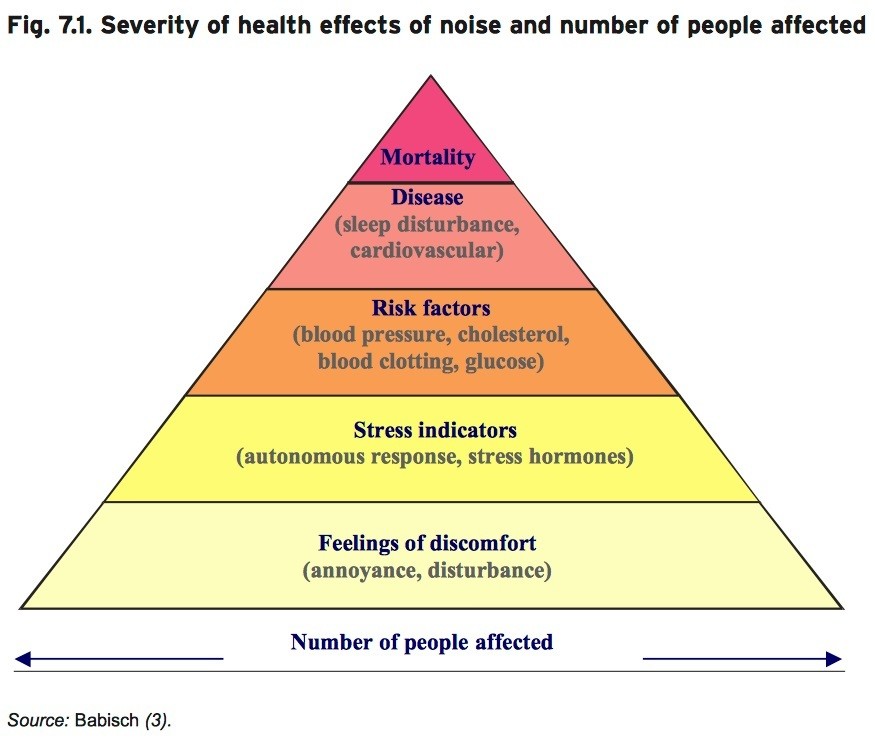These are the cities with the worst noise pollution

Noise pollution in cities is damaging our hearing
Image: REUTERS/Paulo Whitaker
Stay up to date:
Future of the Environment
When you think about pollution you probably imagine a smog-filled city, or an ocean choking on plastic.
But pollution extends beyond what’s in the air and the water. Noise pollution, the noise we live with every day, is a growing problem, and it’s affecting our hearing.
Unsurprisingly, noise pollution is particularly bad in cities. A recent study found that Guangzhou in China had the worst noise pollution, while Zurich in Switzerland had the least.
The Worldwide Hearing Index was created by digital hearing app founders Mimi Hearing Technologies GmbH. They analysed the hearing test results of 200,000 of their users.
They combined their results with data on noise pollution from the World Health Organization (WHO) as well as from SINTEF, a Norwegian-based research organization, and used it to plot noise pollution in 50 different cities.

Delhi was the second worst city for noise pollution, followed by Cairo, Mumbai, Istanbul and Beijing.
Barcelona, one of only two European cities to feature in the worst 10, came 7th, while capital cities Mexico City, Paris and Buenos Aires cam in at 8th, 9th and 10th position respectively.
The top five quietest cities were all in Europe: Zurich, Vienna, Oslo, Munich and Stockholm.
Three other German cities featured in the quietest top 10, Dusseldorf in 6th place, Hamburg in 7th place, and Cologne in 9th place. Portland came in 8th and Amsterdam came in 10th.
Typical sources of noise pollution are transport, such as road, rail and air traffic, construction and industry, and radios and televisions blaring in shops, restaurants and bars.
The problem with noise pollution is that it is a contributor to hearing loss.
According to WHO, 360 million people worldwide have disabling hearing loss, and 32 million of these are children. WHO says that exposure to excessive noise is one of the causes.
The Mimi study found that the average city dweller has a hearing loss equivalent to 10-20 years older than their actual age.
Residents of Vienna, Austria have the least amount of hearing loss proportionate to their age, with an average hearing loss of 10.59 years.

Citizens of Delhi, India have the most, with a hearing age of 20 years older.

Environmental noise is not the only factor affecting aural health, however.
WHO says that 1.1 billion teenagers and young adults are at risk of developing hearing loss due to the unsafe use of personal audio devices and exposure to damaging levels of sound in noisy entertainment venues.
And hearing loss doesn't just affect day-to-day life. For example, it has been linked to depression and dementia. WHO says there is also a link between hearing loss and cardiovascular disease, cognitive impairment, sleep disturbance and tinnitus.

WHO says that half of all cases of hearing loss can be prevented through public health measures, including reducing exposure to loud sounds by raising awareness about the risks; developing and enforcing relevant legislation; and encouraging individuals to use personal protective devices such as earplugs and noise-cancelling earphones and headphones.
Practical steps that cities can take include the installation of road or rail noise barriers, managing flight movements around airport locations and reducing noise at source, such as through quieter tyres on vehicles. More green spaces within cities also reduces the impact of noise.
The authors of the study hope that the Worldwide Hearing Index will not only raise awareness among residents of cities and governing institutions, but will act as a call to action for individuals and healthcare providers to make better investments in aural health.
Don't miss any update on this topic
Create a free account and access your personalized content collection with our latest publications and analyses.
License and Republishing
World Economic Forum articles may be republished in accordance with the Creative Commons Attribution-NonCommercial-NoDerivatives 4.0 International Public License, and in accordance with our Terms of Use.
The views expressed in this article are those of the author alone and not the World Economic Forum.
Forum Stories newsletter
Bringing you weekly curated insights and analysis on the global issues that matter.
More on Health and Healthcare SystemsSee all
Silvio Dulinsky
May 23, 2025
Victor Dzau and Paula Bellostas Muguerza
May 21, 2025




